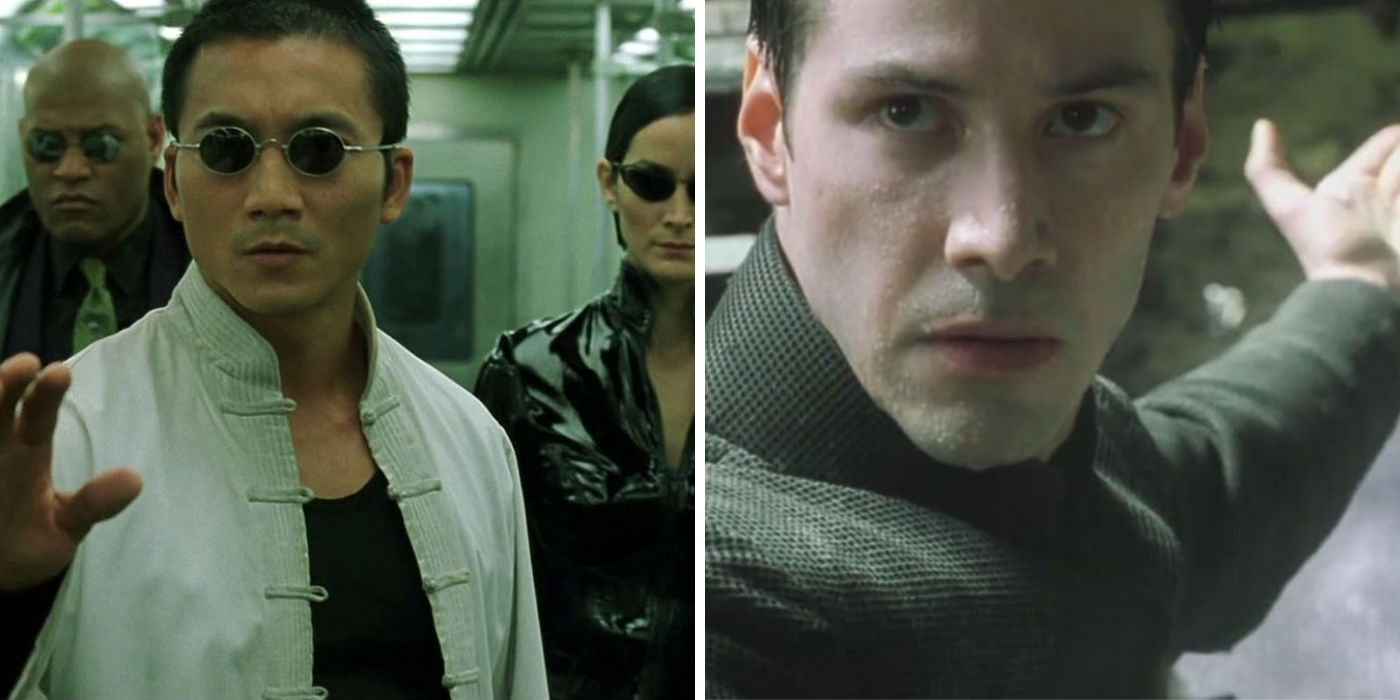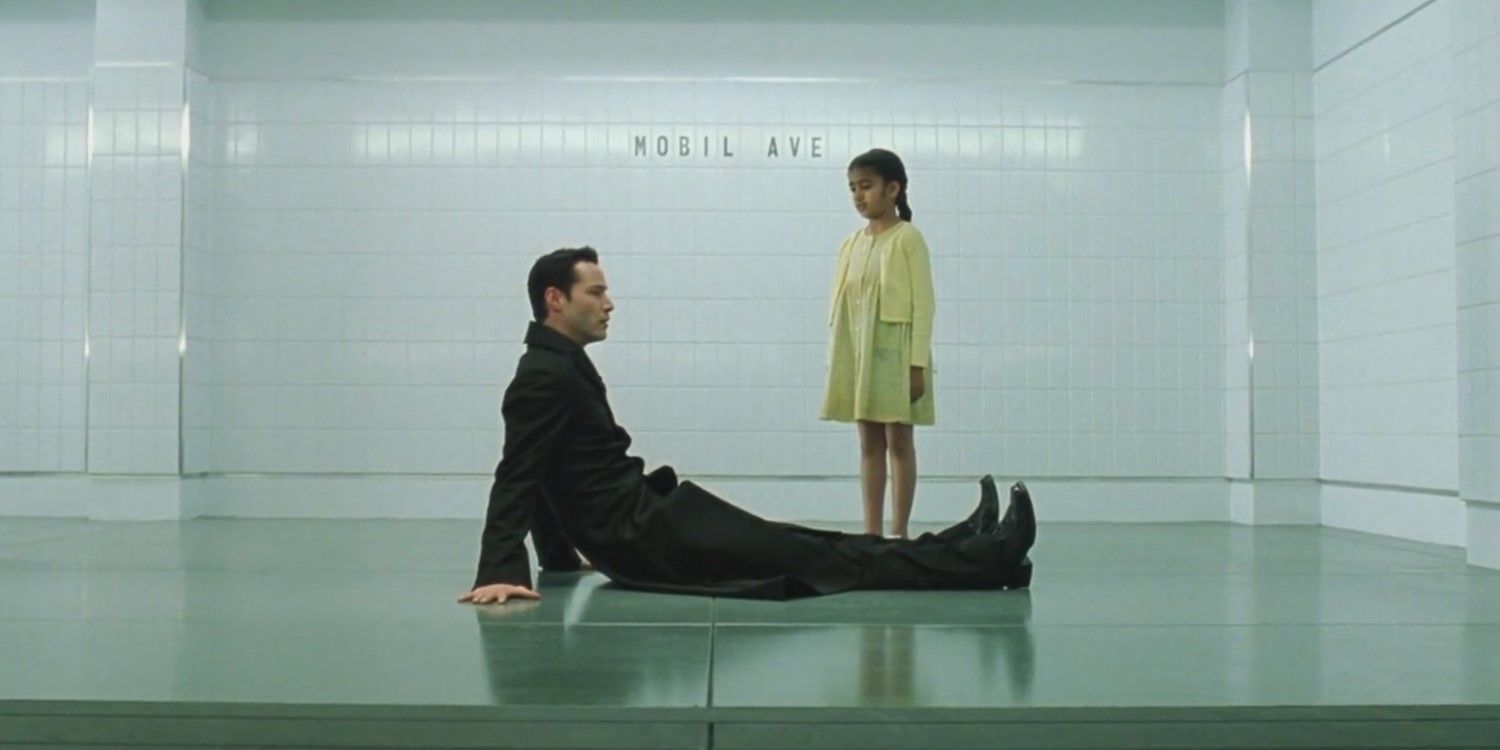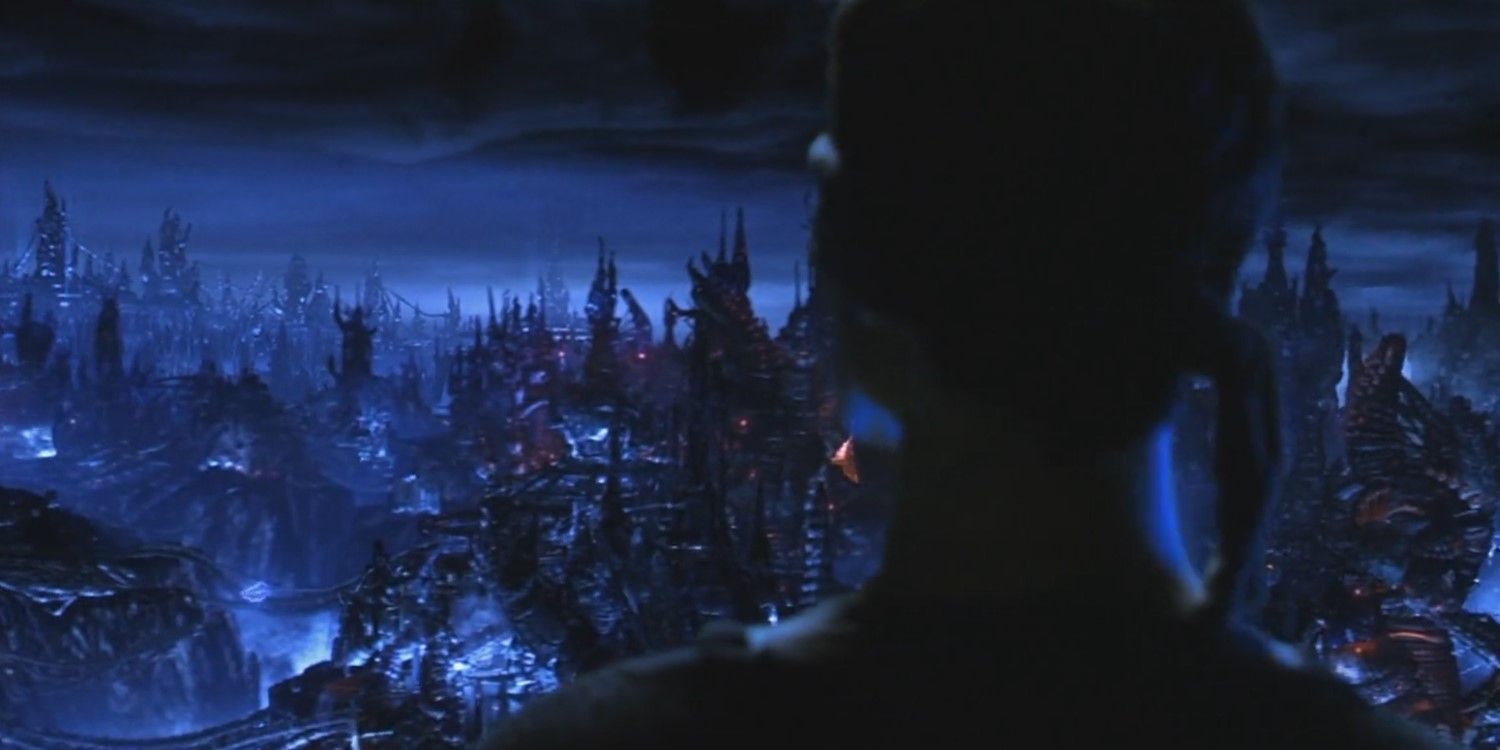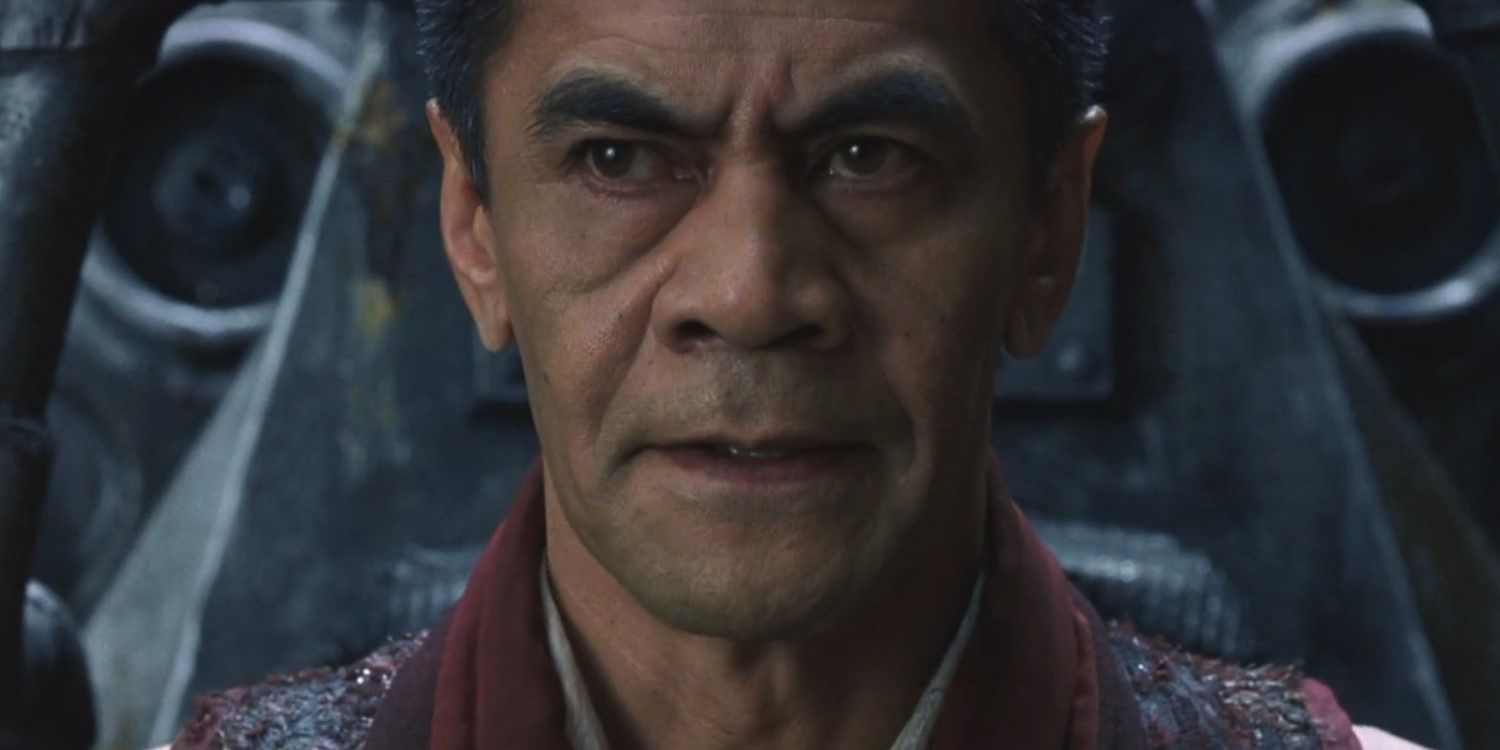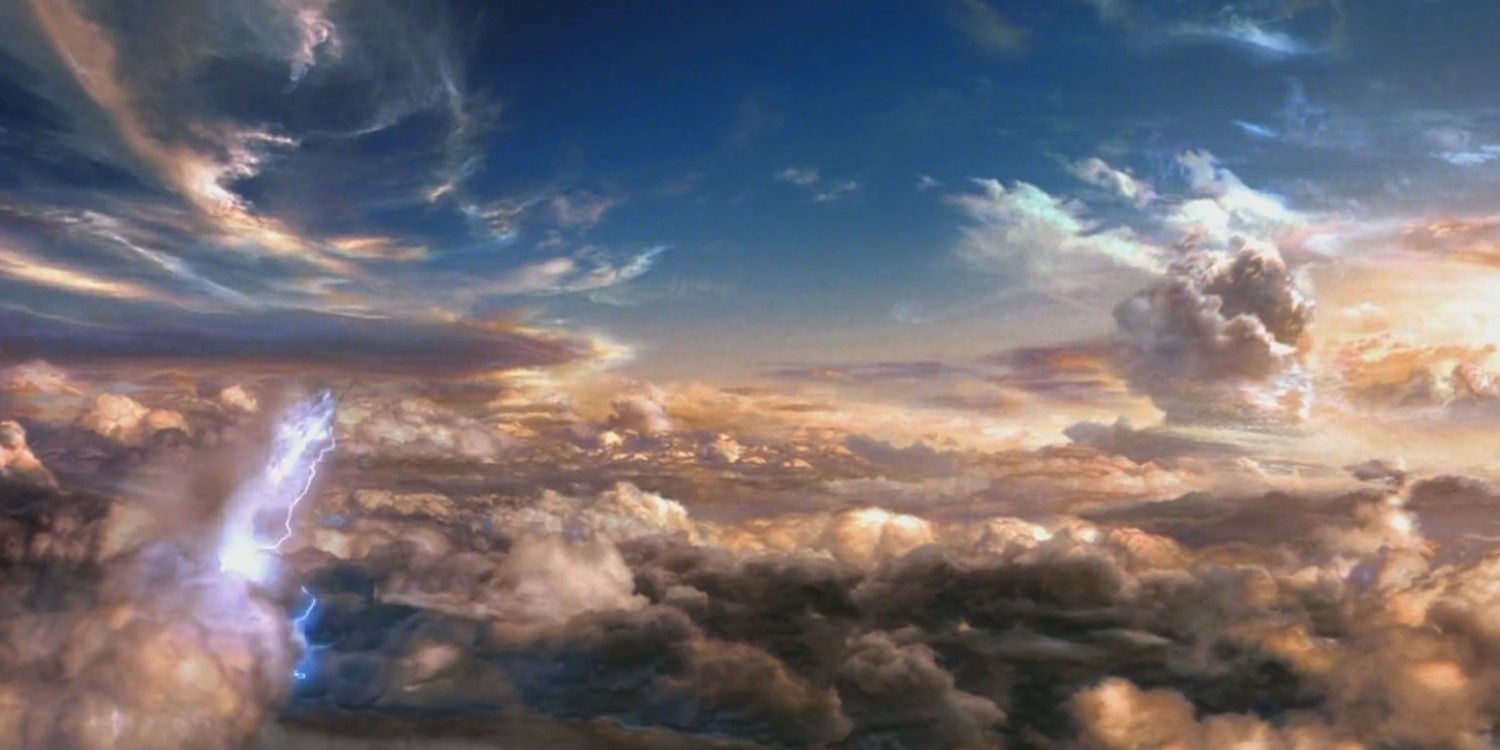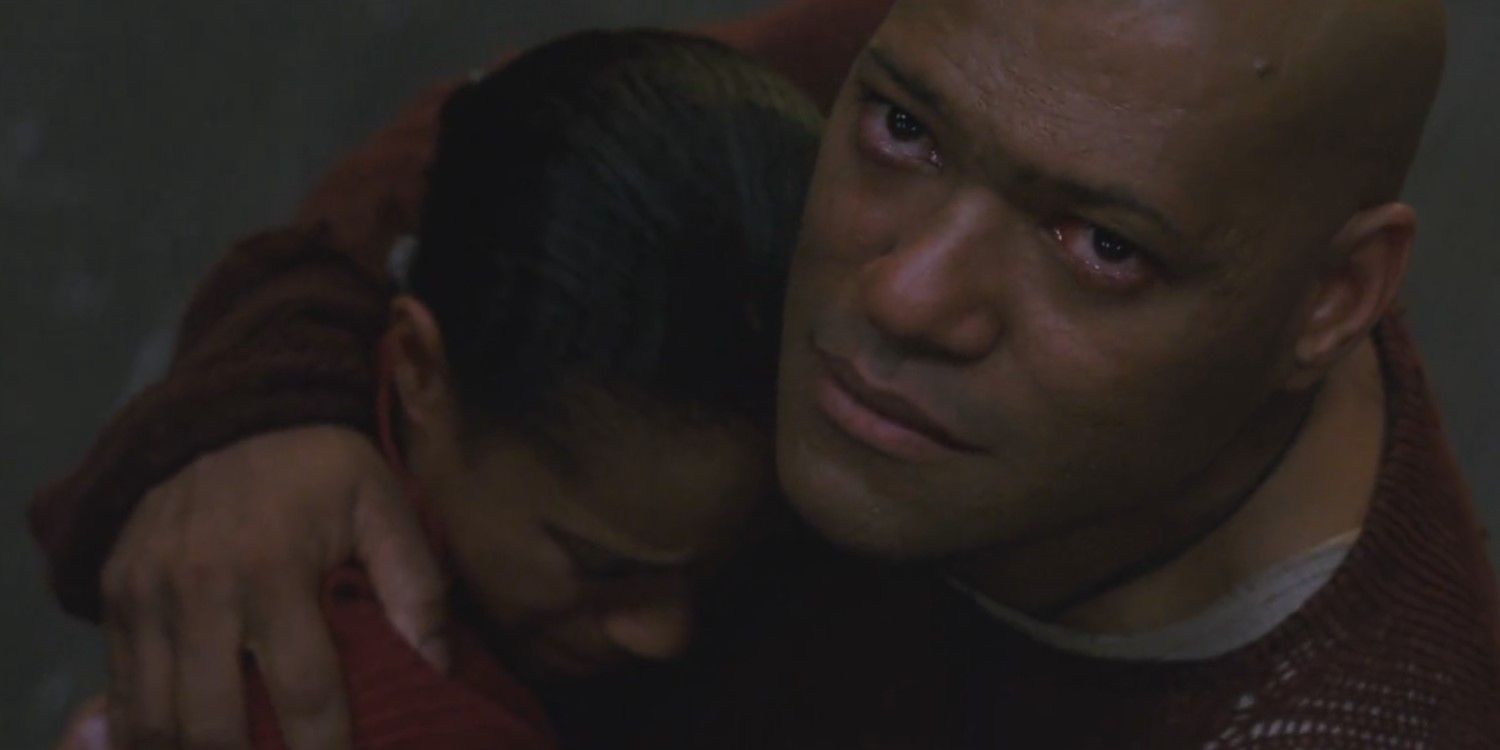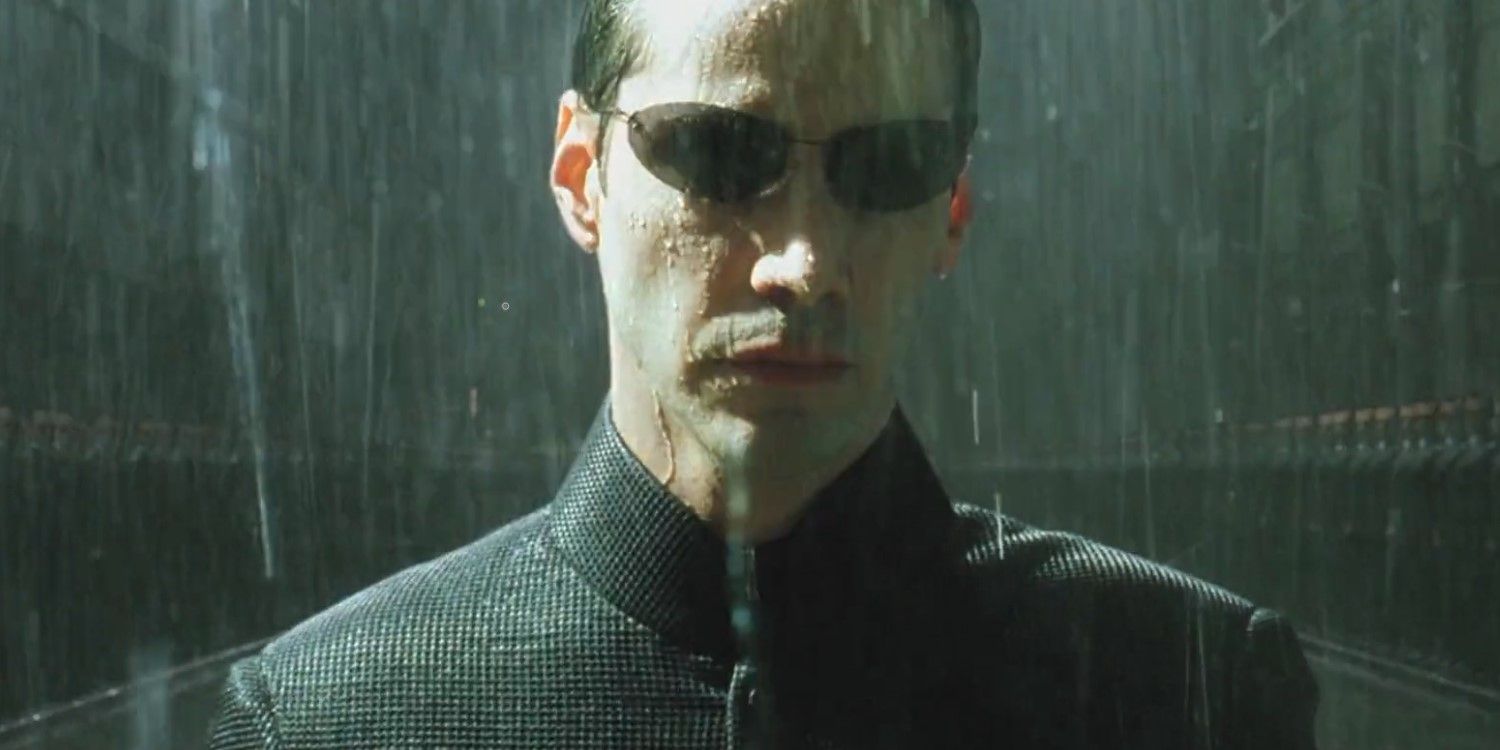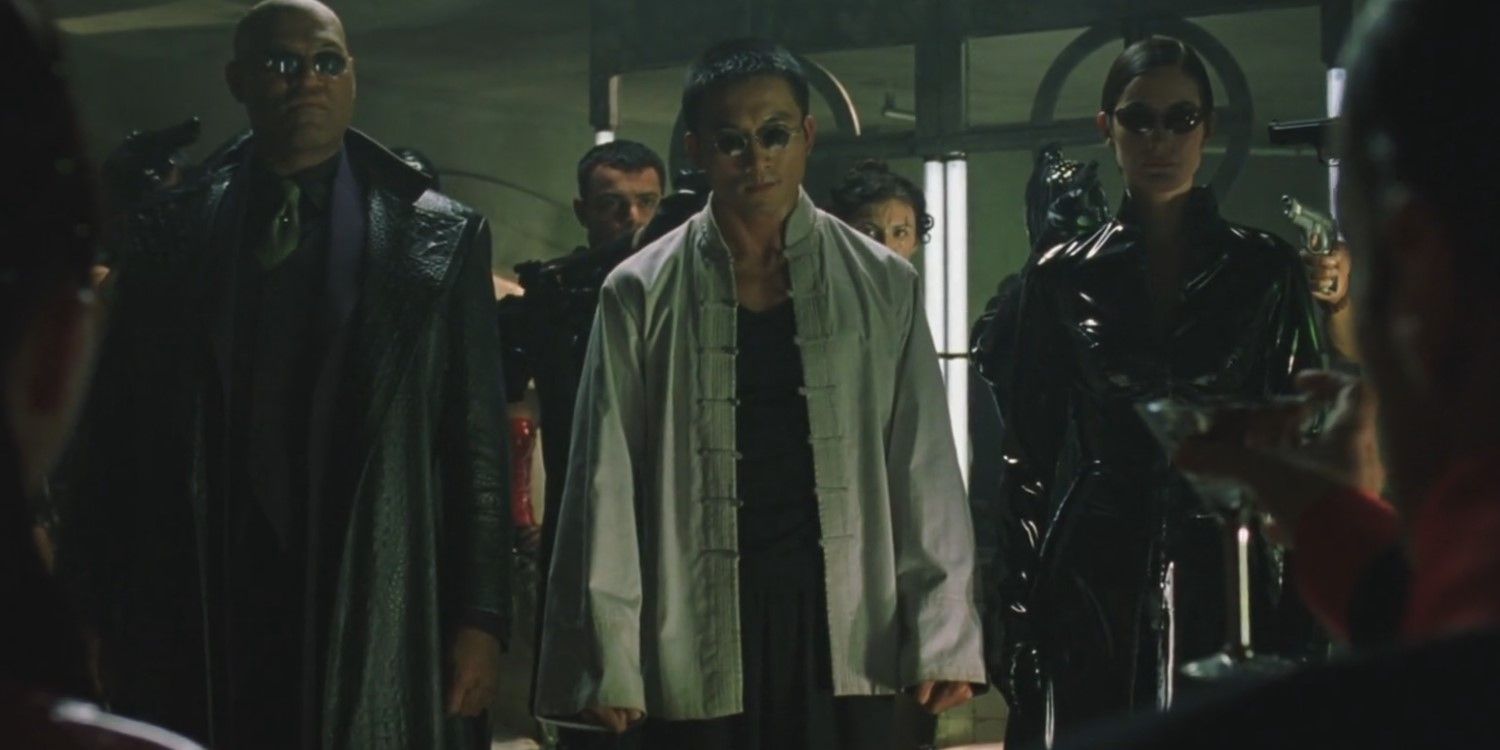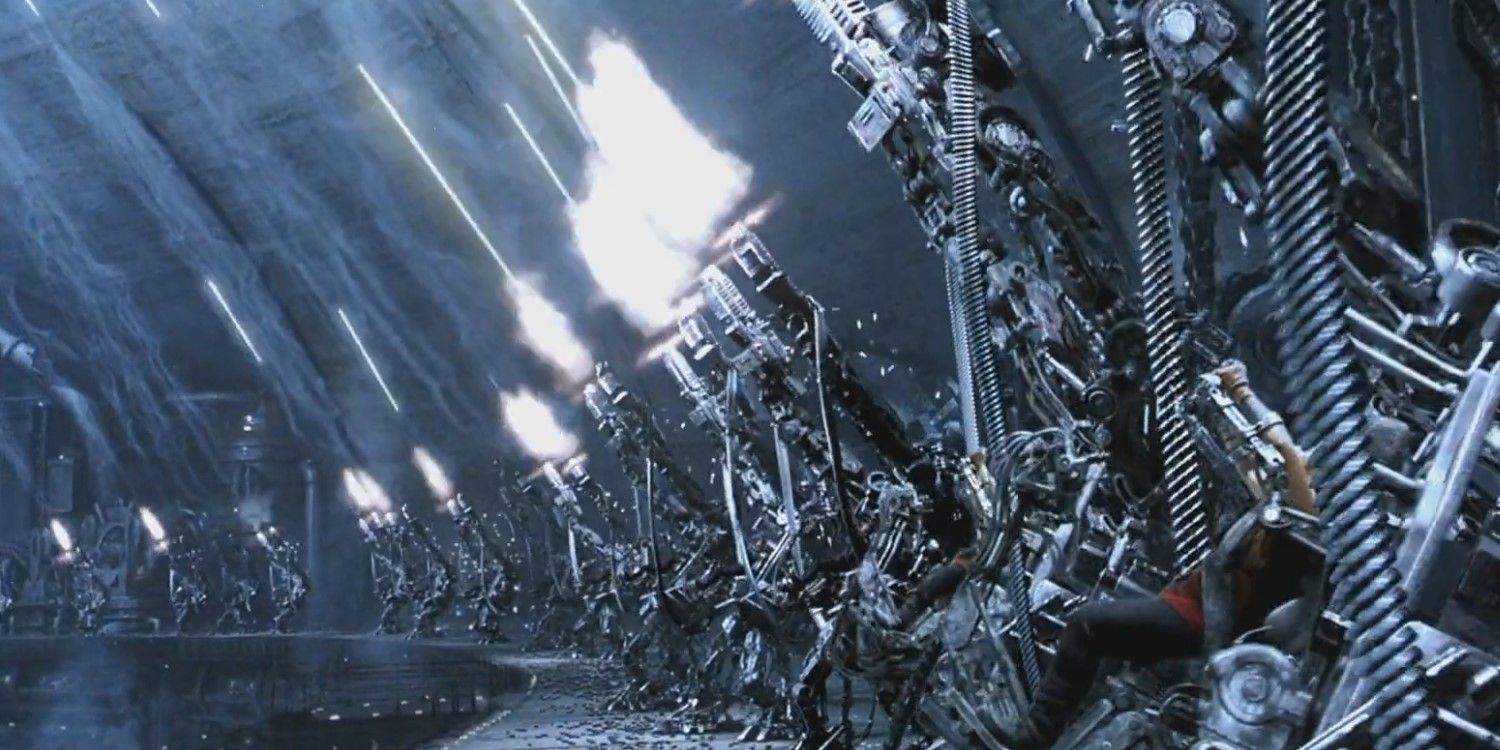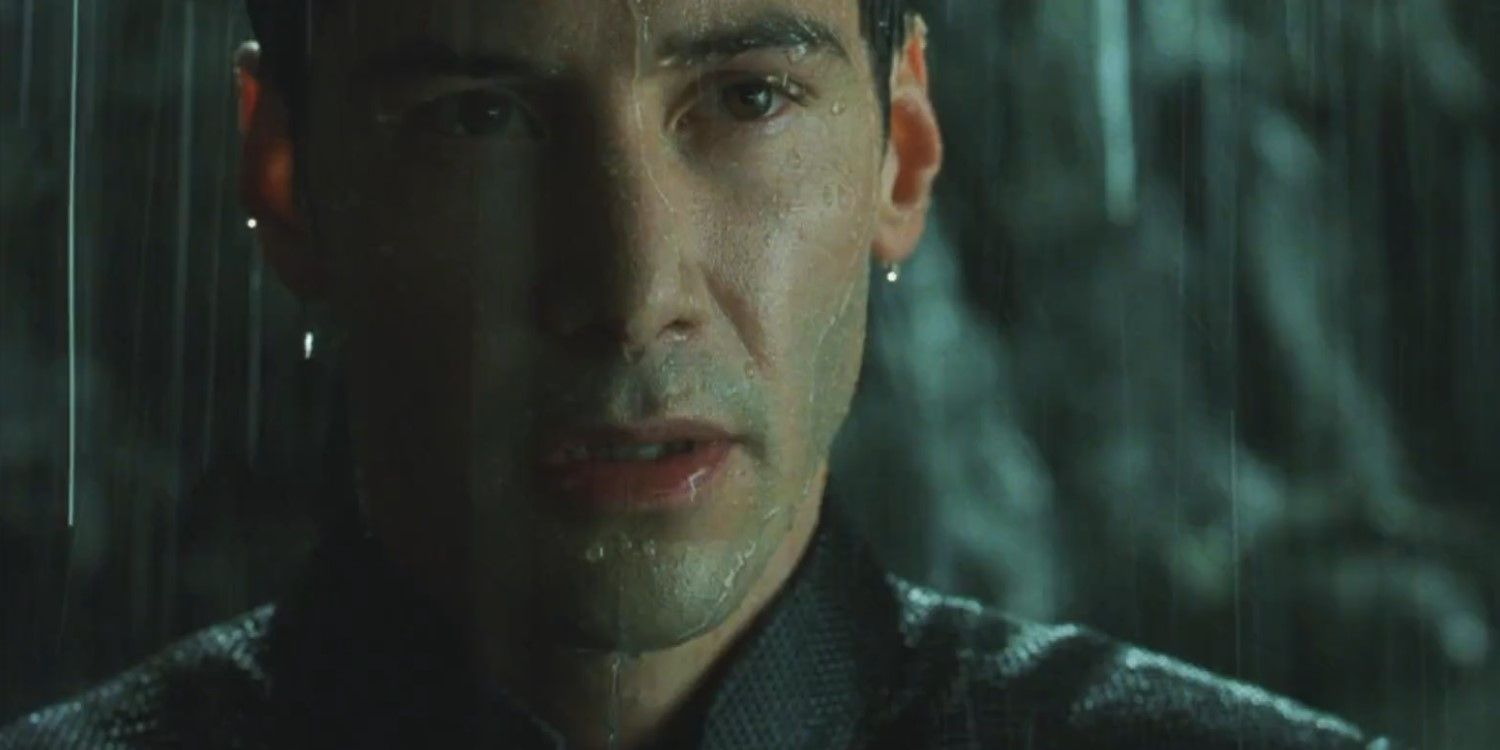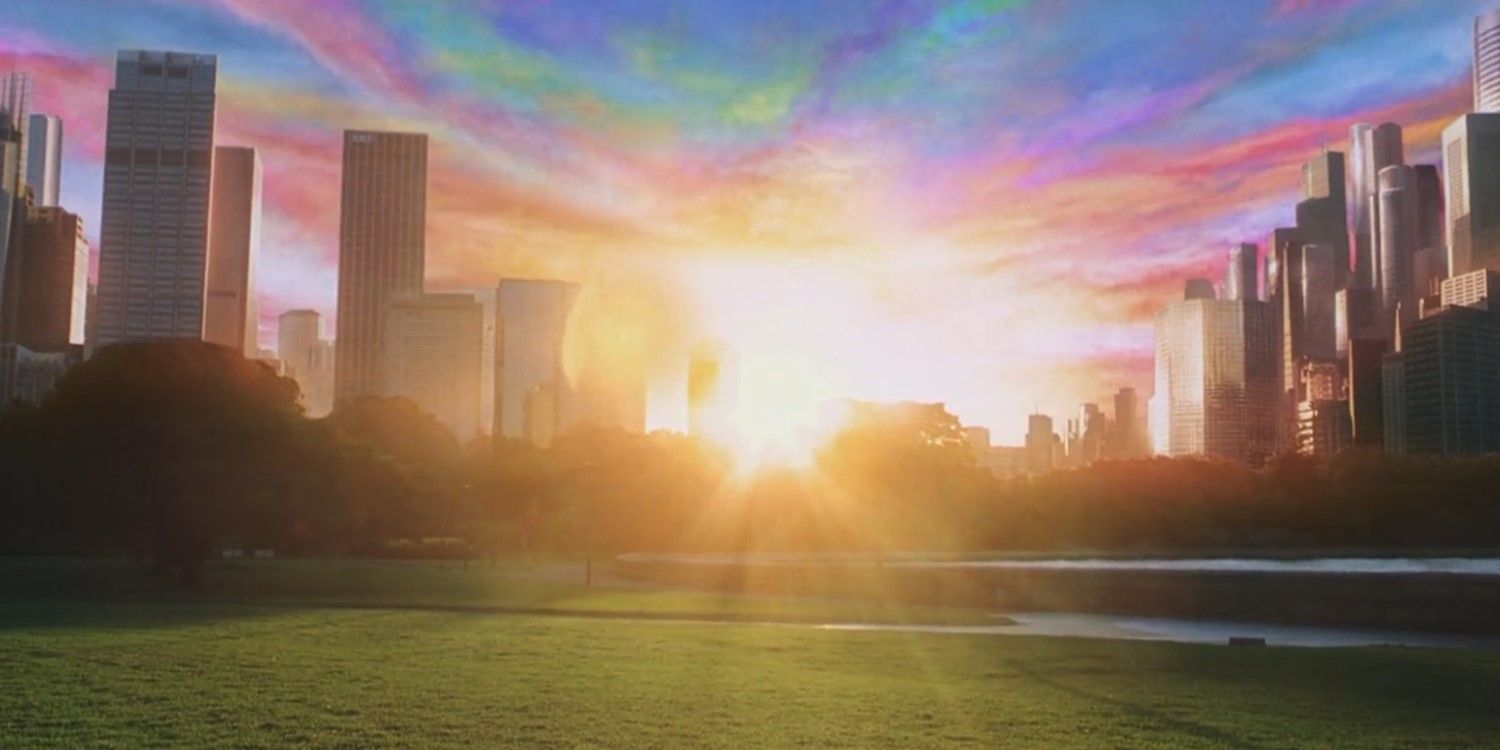The Matrix is regarded as one of the best and most influential science fiction films ever made. Filmmakers spent many years after the initial release of the first Matrix film trying to capture the particular style that gave it such mass appeal to varying success. But it was not just the trench coats, guns, and martial arts that made the Matrix so popular, it was also the philosophical premise at the core of the story that made it stick in people's minds for years to come.
Sadly, neither sequel has gained the level of respect and admiration that the original film did. The third film, known as The Matrix Revolutions, is often considered to be the black sheep of the series. There are many good qualities in each Matrix film that often get overlooked by the average filmgoer.
10 The Train Station As Purgatory Is Brilliant
At the end of the second Matrix film, Neo gets hurt when using his powers in the real world. In Revolutions, he is in a coma-like state and when his brain is examined through the machines aboard one of zion's hovercrafts, it seems to be functioning the same as it would if he was plugged into the Matrix.
Neo experienced this span of time in a subway station underground that is between the real world and the Matrix and is unable to escape. The virtual world that he finds himself in is applicable to purgatory, a transitory place between other places, and does a great deal to indicate to the audience that Neo's ability to transcend the rules of his universe might be more powerful than the previous incarnations that are mentioned in The Matrix: Reloaded.
9 The Machine City Is Terrifying But Beautiful
Since Morpheus first explained the nature of the Matrix, and how humanity was used as energy for the machine world, fans had only a few brief glimpses of the world that the machines had created for themselves after humanity fell. In Revolutions, fans finally got to see what the great machine city really looked like, and it is an image that has stayed with them since.
The towering buildings, the living wiring, the pulsing electricity that evokes tech-noir billboards all with a distinctly H.R. Giger style make the city stand out as a truly strange sci-fi setting.
8 Captain Mifune & Many Other Side Characters Make The World Feel Alive
Neo and the crew of the Nebuchadnezzar are obviously the main characters of the Matrix trilogy, but they are not the only people fans got to see as the series progressed. Many side characters existed at each level of the conflict between humanity and the machines so that viewers could see the effects of this war from more angles than the chosen one.
It is easy to forget that the largest part of Revolutions is dedicated to the war for Zion that Neo isn't even present for. This war would have fallen flat if it wasn't for Niobe's piloting or Captain Mifune's heroic struggle or the other incredible people proving why humanity deserves to be preserved.
7 Seeing The Sun Brings The Series Full Circle
In the first film, Morpheus mentions that nobody knows who started the war between humanity and the machines, but that it was humanity that burned the sky and blocked the sun from warming earth. This depressing note was poignant enough on its own but becomes even more so for the brief moments that the sun actually appears in Revolutions.
The first film showed viewers 'Simulacra and Simulation' on Neo's desk, the second film spoke about determinism and agency, and the third evokes Plato's allegory of the cave filling out the philosophical undertones of the series beautifully. Neo and Trinity being the only living people to experience the sun, only to return to the dark and pull everyone else out is more metaphorically salient than any other piece of imagery in the series.
6 Morpheus' Faith Is Finally Rewarded
An ongoing subplot of the Matrix trilogy is the faith Morpheus has in the prophecy of the one. He believes that Neo will save them so blindly that he puts himself at risk many times just to facilitate Neo's transcendence. He doesn't need to hear the oracle confirm it, he doesn't need to understand how it works, even the architect revealing that the prophecy was created to manipulate people isn't enough to truly convert him.
And in the end, when the machines cease their attack on Zion at the precipice of their victory and then retreat, his entire identity is vindicated. While the other films had moments that showed Morpheus was right to trust in Neo, the moment at the end of Revolutions is easily the most powerful and memorable of them.
5 The Final Fight With Smith Is Legendary
It might be a common thing to scoff at the over-the-top elements present in the finale of The Matrix trilogy, however, it is unclear how else things could have gone. By the end of the first film, it was established that Neo was a superhuman capable of flying and surviving bullet fire while in the Matrix.
The second film establishing that Smith was able to copy himself into any number of other programs and people in the Matrix leading to a massive swarm of him attacking Neo. There was nowhere else that could ascend to other than two flying titans creating shockwaves with their punches, and seeing it on the big screen was an absolutely incredible experience.
4 The Filmmaking Was Fantastic
While certainly not unique among the Matrix films, it should be mentioned that Revolutions has a fantastic soundtrack. It also had an amazing set design, action, acting, costumes, and shot composition.
It is easy to overlook these things when a movie belongs to a prestigious franchise like The Matrix but the actual bones of this film are far ahead of any of the 'Matrix Clones' that arrived surrounding the series' popularity. While a lot of the CGI in the entire series doesn't hold up very well, the rest of the filmmaking really does and it is worth commending.
3 The Battle For Zion Was Incredible
The majority of screentime in the first two Matrix films is spent in the titular digital realm of the Matrix. Revolutions is the opposite, spending most of its runtime in the real world, and it works as a great way to differentiate it from its predecessors. Not only that, the added focus on Zion and humanity as a whole expands the threat and makes the stakes of the series come into the forefront.
When the time came for humanity to defend itself from the machines seeing the technology, strategy, and willpower of the city of Zion was impressive to witness. Even more so was the overwhelming power of the machines, evoking a sense of the Terminator universe if John Conner wasn't around.
2 The Existentialist Theme Hits Home
There is a moment in Revolutions when Smith is confounded by Neo's persistence. This moment is the conclusion to the thesis statement made by the first film and it serves as the ultimate point of the entire trilogy.
Choice and determinism was a common conversation in both of the previous films, but at the end of it, Neo simply chooses to continue fighting. It is an illustration of the self-making power of the human condition and it is what separates us from machinery, mechanical or otherwise.
1 It Leaves The Viewer Wanting More
How can Neo see after losing his eyes? How did Smith take over the mind of someone outside of the Matrix? How can Neo control machines in the real world using powers that supposedly only exist in the Matrix? These are all questions that were not answered fully by the Matrix trilogy.
With The Matrix 4 on the horizon, it is worth wondering just what the answers to those questions might be. It could very well be that the real world is just another form of control and that the entire trilogy took place within a simulation. Finding the breadcrumbs in Revolutions is half the fun of speculating on the eventual sequel, and there are likely many yet to be found.

